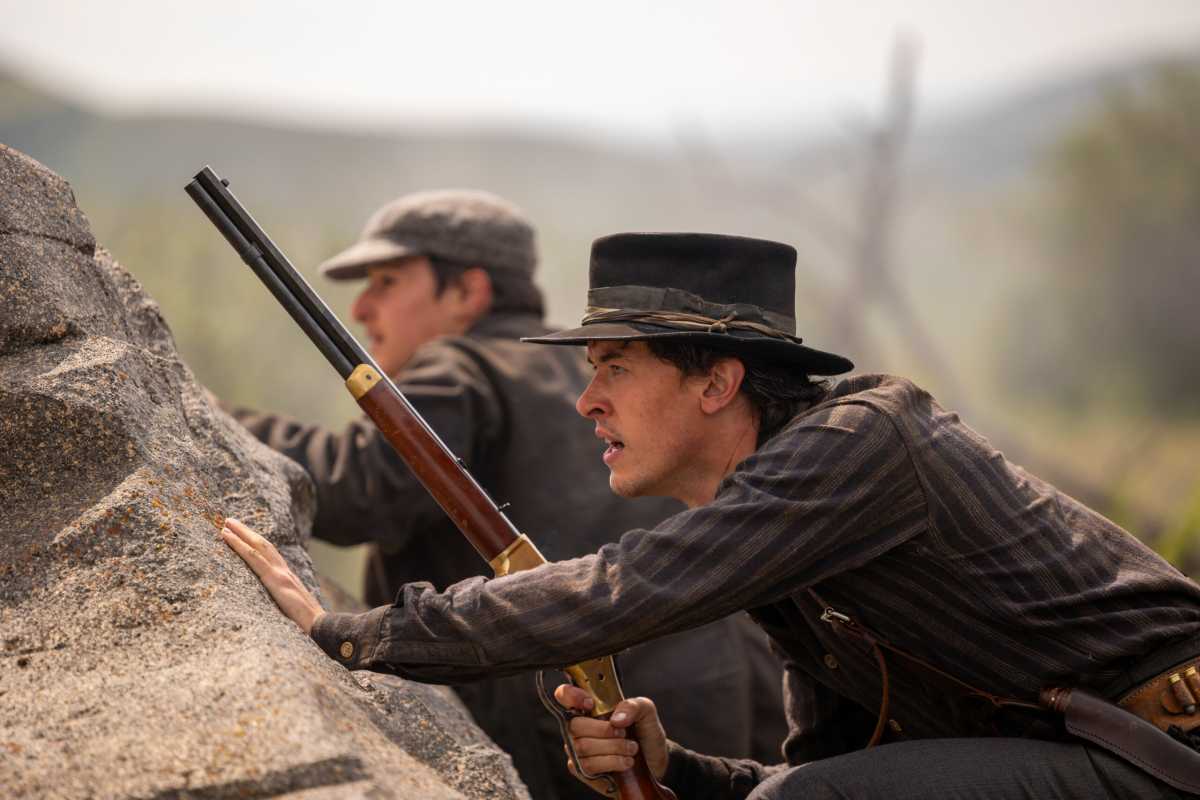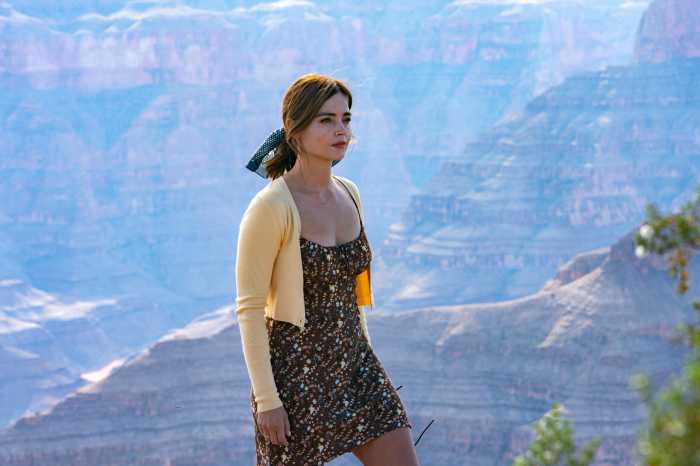Writer Michael Hirst sat down to discuss what went into creating Season 2 of his passion project, ‘Billy the Kid.’
Where did the idea for this show come from at the start?
Well, a personal interest for me. It’s very much a love story [from] when I was a kid myself in the 1950s in Yorkshire—which is as far away from New Mexico as you can possibly get. But I was somehow fascinated by Billy the Kid. I must’ve read about him in some comic or somewhere. Anyway, because I had to walk to school across the fields and through the woods, I was always riding a white horse and being Billy the Kid followed by the posse.
And when Michael Wright and I a couple of years ago sat down to discuss, he said, I want to work with you… What do you want to do? And I said, I’d like to do a Western, I’ve never done one, and, the thing that’s always fascinated me or the person that has is Billy the Kid—and I think I can make a show out of him, he’s so interesting. A guy who died at the age of 22 is theoretically still one of the most famous people in the Western world, and I wanted to explore him and find out if it had been worthwhile to hero worship [him] when I was a kid.
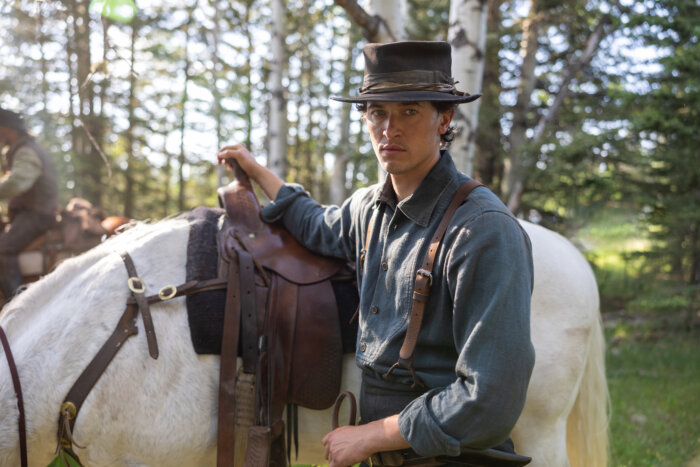
What are some of the characteristics of Billy the Kid that you admired and wanted to come across in the show?
I think what I first discovered when I dug into the myth and when I started reading about him was that most of my expectations were wrong. Most of my suppositions were wrong dealing with a famous outlaw and someone who’d killed so many people and everything. He’s usually portrayed as a sort of psychopathic killer, like most outlaws. He was far more interesting than that.
So, I wanted to tell his story from when he was a young boy because who knew that he was the son of Irish immigrants? Who really knew his story, or who knew that his family of Irish Catholics had come over to America into New York and then they [were] forced out because there were no jobs? The government offered them work and housing in the West, and when they got there, there wasn’t work or housing.
Billy’s father sort of opted out of life, and his mother was left with two children with Billy and his brother, and then his mother died. She was the one who gave him a deep moral compass based on her Catholicism. So what I found was this deeply sensitive, studious, imaginative boy, a young man who was a bit like me. Billy never wanted to be a famous outlaw and a killer and everything, he just wanted to be normal and get a good job. But his family had been placed in one of the most dangerous parts of America and circumstances led him into crime.
He met Jesse Evans, who’s one of the great characters I think in the show and was impressed by him. But he always rebelled against that definition of himself as a killer, and so, there was so much to say about the real human being, and I wanted to be almost the first to say it. When the real shooting starts, which is in Season 2, you know about Billy and his sensibilities, you know his character. And so you are empathetic to it, you’re involved in his life and you’re involved in his feelings. That’s what I was trying to do, I was humanizing him.
Did you know from the beginning that Season 2 would delve into the Lincoln County War?
Yes, because from my research, from everything I read about Billy, I knew that the fundamental period in his life was the Lincoln County War. It was the war that made his name and made him famous because of the extraordinary things he did in it. And so you could say in a way, that Season 1 is preparation for the Lincoln County War, and Season 2 becomes more like a real Western.
There’s lots of violence and killings and everything, but I hope we’d earned that because we’d seen what led up to it. And I’d say we knew who Billy was and he took us into the Lincoln County War. So it was actually very exciting for me to get to that point and be able to write about extraordinary and often extremely brave things that Billy did during that absolutely awful, terrible, lawless violent time.
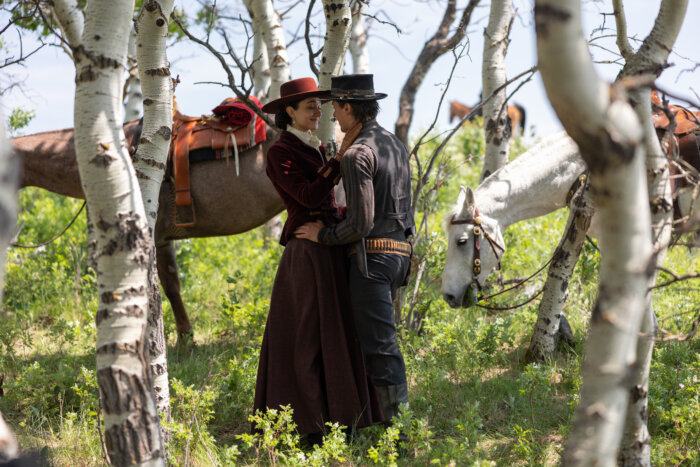
In an interview, I saw that you mentioned that production really amped up for the second season as well. What specifically went into that?
Well, we don’t work from a studio, everything is on-site—everything. We moved around a lot and there was a lot of establishing in a way the kind of world that this was. Season 1, to me, was also wonderful, but at the end of that process, I wanted us to take a deep dive into what was coming and what the war would be. So the first thing that we shot was the first scene in Season 2, which is prefacing something that’s going to happen a little later down the line. It’s the burning house and Billy trying to escape from this incredible inferno.
Believe me, that was a really tough shoot. It took a whole day and night to shoot that scene at the burning house and the choreography of it. The sense of being on the line between life and death, and the difficulty of actually shooting it, because it was quite a potentially dangerous shoot, I just wanted to up the ante to show that this was really going to be a show now about life and death for all the main characters. So I planted that right at the start of Season 2, just to flag up the fact that this is what you’re going to see from now on.
Since this is such a passion project, are there any moments from the show that stand out to you?
The scenes I had in my head, the scenes that I’d been writing—they were better on screen than in my head. And that’s an unusual thing for a writer… Often writers feel that, okay, the production makes compromises to get things on the screen. But I’ve never felt that we were compromising. And I think the production in Calgary is wonderful and brave and whatever I asked for, they gave me.
And for the young actors in the show, some of them hadn’t ridden horses, and suddenly they got to Calgary and they were surrounded by real cowboys. Can you imagine the thrill for young actors of working with real cowboys? So we had stampedes or wild horses or whatever, and there were the actors in the middle of a stampede on horseback, but beside them always would be real cowboys, protecting them, looking out for them. And it gave it this wonderful sense of reality [because] it was really happening.
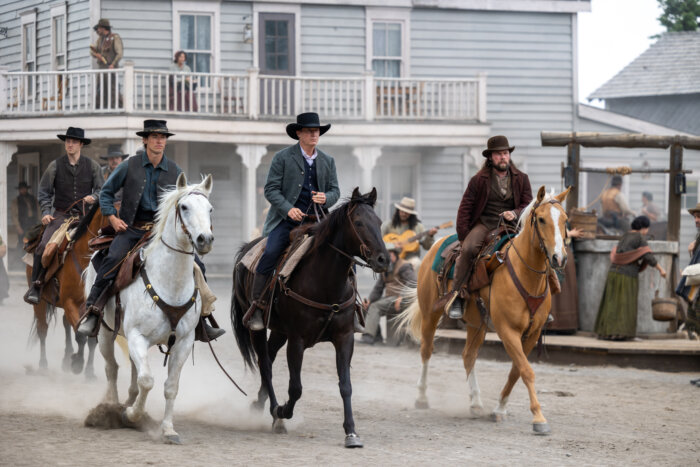
Catch Season 2 of ‘Billy the Kid’ on MGM+



